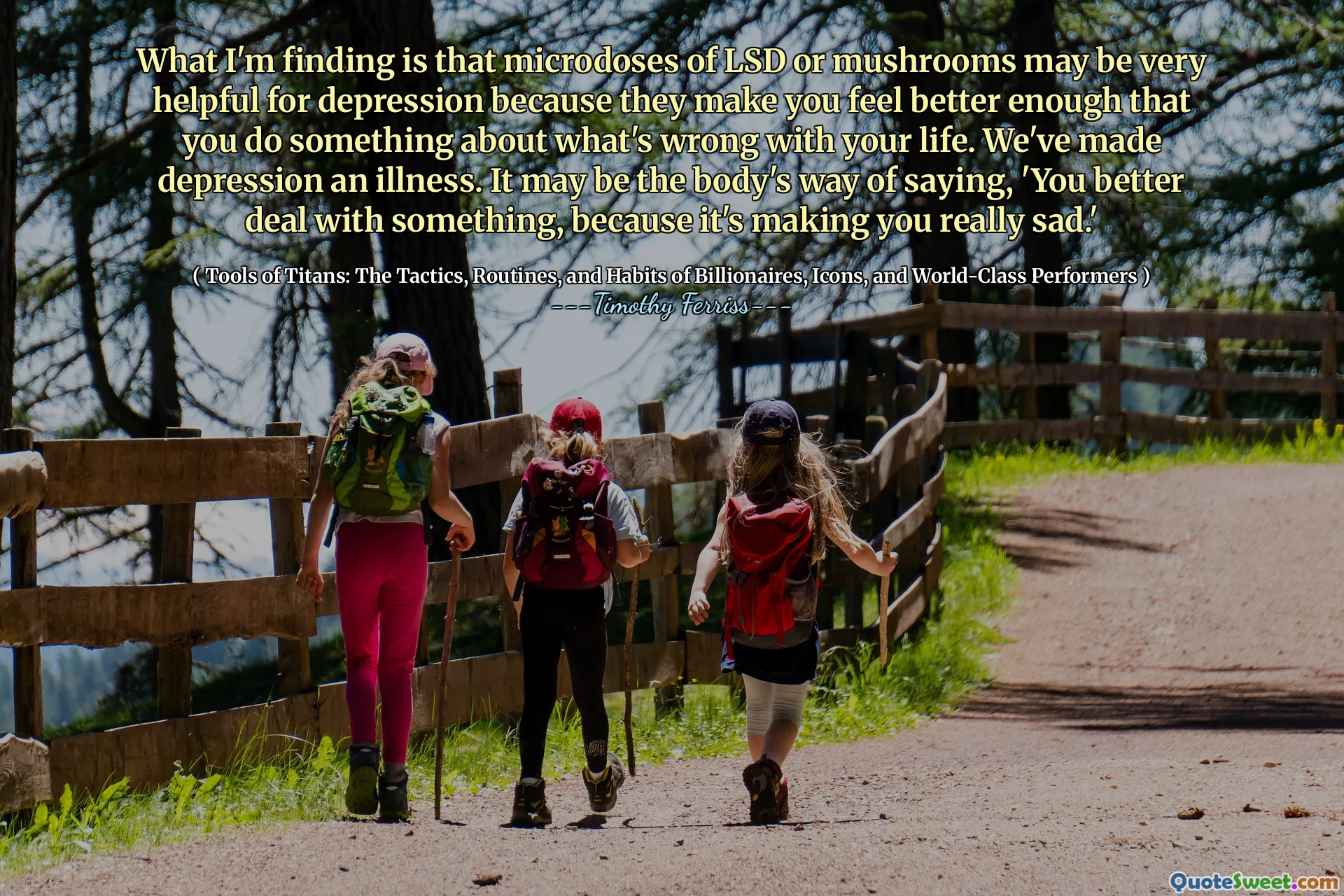
What I'm finding is that microdoses of LSD or mushrooms may be very helpful for depression because they make you feel better enough that you do something about what's wrong with your life. We've made depression an illness. It may be the body's way of saying, 'You better deal with something, because it's making you really sad.'
This quote highlights a provocative perspective on mental health and the potential therapeutic uses of psychedelic substances. The idea that microdoses of LSD or psilocybin mushrooms could serve as catalysts for addressing underlying issues of depression challenges conventional medical approaches that primarily rely on medication and therapy. It suggests that depression may not merely be an isolated illness but perhaps a signal from the body or mind indicating that something in one’s life needs attention and resolution. The notion that these substances can elevate mood enough to enable individuals to confront and resolve underlying problems is compelling, yet it also invites caution due to the complex legal, ethical, and safety considerations surrounding psychedelic use. Historically stigmatized, psychedelics are now being revisited in scientific research for their potential psychological benefits under controlled environments. This perspective invites a broader discussion on the stigma of mental health illnesses, the potential for alternative treatment modalities, and the importance of understanding mental health as intertwined with our overall life situation. The idea that depression could signify a prompt for personal growth rather than just an illness to be medicated pushes us to rethink our approach toward mental wellness. It emphasizes a holistic view—where truth and healing may sometimes require facing uncomfortable truths and taking active steps to transform one’s life, rather than solely alleviating symptoms. This nuanced viewpoint encourages more open dialogue, research, and innovation in mental health treatments, ultimately contributing to a more compassionate and comprehensive understanding of human suffering and resilience.





